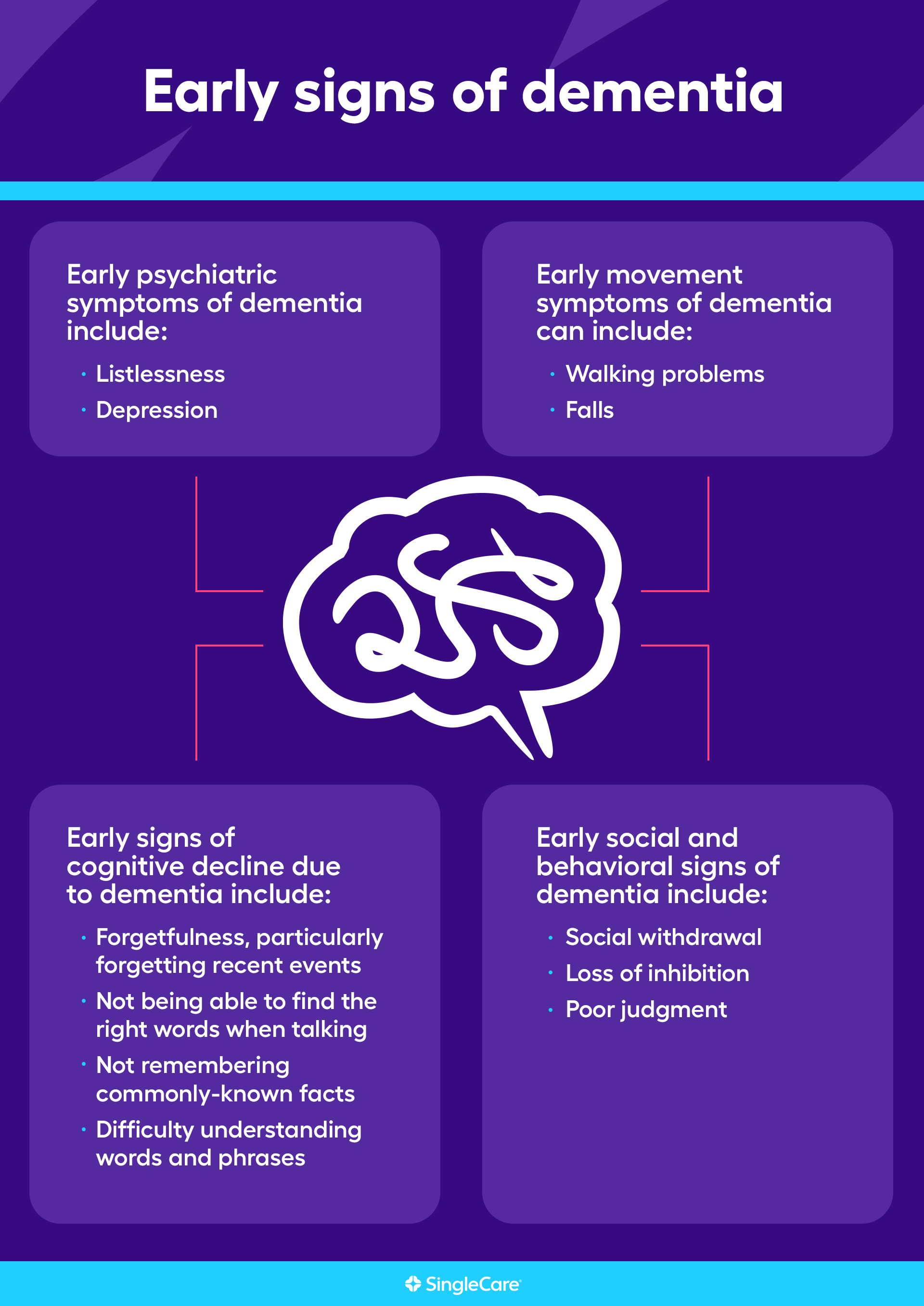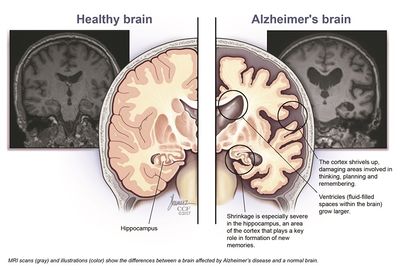Checklist: How to Safeguard Your Home Against Fall Risk for Seniors
Checklist: How to Safeguard Your Home Against Fall Risk for Seniors
Blog Article
Understanding the Influence of Dementia on Every Day Life and Caregiving
Dementia influences life in extensive methods, impacting not simply those identified however additionally their caregivers. As cognitive decrease progresses, you may notice modifications in interaction and routine that obstacle both parties. Recognizing these changes is necessary for keeping dignity and engagement. But just how do you adapt your caregiving strategies to support a person traversing this complicated trip? The responses could amaze you as we check out the nuances of this experience.
The Phases of Mental Deterioration and Their Impacts on Day-to-day Live
As you browse the journey of mental deterioration, understanding its phases can considerably affect how you manage day-to-day life. Dementia typically advances through 3 primary phases: early, center, and late.
Throughout the middle phase, you'll experience a lot more visible cognitive decrease. Daily tasks may end up being difficult, and preserving your self-reliance might call for changes. Making use of tips and simplifying your environment can aid.
In the late stage, individuals often need substantial support with daily tasks. Preparation for care becomes vital, focusing on comfort and lifestyle. By understanding these stages, you're much better furnished to react proactively, guaranteeing you or your loved one can browse the difficulties with dignity and elegance.

Changes in Interaction and Social Interaction
How do modifications in communication impact your day-to-day interactions as mental deterioration advances? As mental deterioration breakthroughs, you may notice that simple discussions come to be tough. Words may escape you, or you might have a hard time to find the appropriate expressions. This can lead to aggravation for both you and your liked ones. Nonverbal hints, like gestures or faces, come to be significantly essential.
You might find it less complicated to connect via these methods rather of counting exclusively on talked language. Listening abilities can also alter; you could find it harder to adhere to discussions or remember what was simply said (Frontotemporal Dementia). This can lead to misconceptions or feelings of seclusion
Motivating perseverance and developing a supportive setting can help. Involving in activities that cultivate connection, like music or art, can improve social communications. Remember, keeping connections is still possible; it's almost adjusting to new means of connecting.
Effect on Daily Routines and Activities
While navigating everyday routines, you'll likely observe that jobs you as soon as completed effortlessly come to be much more difficult as mental deterioration advances. You might discover on your own neglecting actions in familiar regimens or battling to remember where you placed items.
Adjusting your atmosphere can assist; for instance, labeling things or using lists can simplify tasks. Engaging in repetitive, organized activities can additionally provide convenience and a sense of achievement. Bear in mind, it's fine to ask for aid.
Emotional and Behavioral Difficulties
Steering through day-to-day routines can produce not simply sensible challenges, however behavioral and also emotional ones. You may see changes in state of mind, such as increased anxiety or irritation, which can stem from confusion or problem in completing tasks. As you navigate these minutes, it is vital to acknowledge that your liked one may share their feelings via actions like anxiety or withdrawal.
These psychological actions can be uncertain and might arise without caution, leaving you both sensation overwhelmed. You may locate that familiar settings or regimens can assist lower stress and anxiety, but maintaining patience ends up being significant. It is necessary to verify their sensations, even if you don't completely understand them.
The Duty of Caregivers in Supporting Individuals With Mental Deterioration
As a caretaker, you play a vital role in giving psychological support for individuals with mental deterioration. Establishing daily treatment regimens can produce a sense of security and convenience, assisting to alleviate their stress and anxiety. By recognizing their demands and making use of effective methods, you can substantially boost their quality of life.
Emotional Support Techniques
When caring for a person with dementia, understanding the psychological landscape is important for giving efficient support. Easy motions, like holding their hand or maintaining eye contact, can develop a sense of safety and security. Eventually, don't neglect to take care of your own emotional needs; looking for assistance for yourself can boost your ability to care for them.
Daily Treatment Routines
Developing daily care regimens is necessary for giving stability and comfort to people with mental deterioration, as these regimens can help in reducing complication and anxiety. You can begin by laying out a regular routine for dishes, activities, and rest. This predictability assists your loved one really feel a lot more safe and engaged.
Include acquainted tasks, like folding laundry or watering plants, which can evoke positive memories and cultivate a sense of achievement. Use visual signs, such as lists or calendars, to direct them via the day.
Be flexible, though; adapt routines as required based on their mood or power levels. Vascular Dementia. Keep in mind, your patience and understanding are important in maneuvering their transforming demands, ensuring they feel sustained and valued throughout their life
Developing a Safe and Comfy Living Atmosphere
Developing a safe and comfortable living setting is crucial for individuals with mental deterioration. You'll wish to make home safety and security modifications that minimize threats and guarantee knowledge to supply a sense of convenience. By concentrating on these aspects, you can assist produce a room that supports both safety and health.
Home Safety And Security Alterations
As you navigate the challenges of dementia, making home safety adjustments can considerably boost convenience and safety and security. Begin by eliminating tripping dangers like carpets and mess, assuring walkways are clear. Set up grab bars in restrooms and non-slip mats in the shower to stop drops. Think about making use of brighter lights and night lights to enhance visibility, particularly during nighttime. Label important locations, special info such as the washroom and cooking area, with clear indicators to aid with alignment. Protect any kind of sharp things or poisonous materials unreachable. Additionally, assess your home's alarm systems and locks to validate they're easy to use and offer assurance. These adjustments not only advertise safety yet also motivate freedom, allowing your liked one to feel more comfortable in their atmosphere.
Convenience and Knowledge
After ensuring a risk-free environment with required adjustments, promoting convenience and experience is essential for individuals with dementia. Start by individualizing their area. Usage acquainted colors, decors, and photos that evoke satisfied memories. A preferred covering or chair can offer a sense of safety and security. Keep a consistent regular to help them feel based and decrease stress Related Site and anxiety. Straightforward, familiar dishes can also develop a calming atmosphere. Keep paths clear and clutter-free to avoid confusion. Integrate soft lights, as intense lights can be disorienting. Consider adding comforting scents, like lavender, to promote relaxation. Participating in acquainted tasks, such as paying attention to music or gardening, can improve their sense of belonging, making their living environment a true sanctuary.
Techniques for Efficient Caregiving and Assistance
While steering the obstacles of mental deterioration treatment can really feel frustrating, applying reliable strategies can substantially enhance both the caregiver's and the patient's everyday experience. Begin by establishing a routine; predictability aids reduce anxiousness for both you and your liked one. Use clear, simple communication-- straight article source inquiries and brief sentences can stop complication.

Do not fail to remember to take care of on your own; timetable breaks and attach with support groups. Sharing experiences with others in similar situations can provide valuable insights and emotional alleviation.
Lastly, stay client and adaptable. Mental deterioration can bring unpredictable changes, so adjusting your approach is necessary. By using these strategies, you can foster an extra positive setting that profits both you and your loved one.
Often Asked Concerns

What Are the Different Sorts Of Dementia?
You'll find numerous types of dementia, consisting of Alzheimer's, vascular mental deterioration, Lewy body mental deterioration, and frontotemporal dementia. Each kind influences memory and cognitive feature in a different way, so comprehending the differences is important for proper medical diagnosis and care.
How Can I Help Someone With Early-Stage Mental Deterioration?
You can aid someone with early-stage mental deterioration by holding your horses, providing assistance, and urging them to take part in tasks they delight in. Maintaining routines constant and maintaining open communication can likewise make a significant distinction in their life.
Are There Financial Resources Available for Dementia Treatment?
Yes, there are funds available for mental deterioration care. You can explore entitlement program programs, nonprofit organizations, and insurance options. It's also smart to speak with regional companies for details sources tailored to your scenario.
What Lawful Considerations Should Caregivers Recognize?
As a caretaker, you ought to consider power of lawyer, healthcare proxies, and guardianship regulations. It's important to understand the legal rights and duties you hold, ensuring your loved one receives ideal treatment and security.
How Can I Deal With Caregiver Tension?
You can deal with caregiver stress and anxiety by focusing on self-care, looking for support from groups or buddies, establishing reasonable expectations, taking breaks, and exercising relaxation techniques. Keep in mind, your well-being matters equally as long as the person you're looking after.
Recognizing the Influence of Mental Deterioration on Daily Life and Caregiving.
As you navigate the trip of dementia, recognizing its stages can considerably affect how you manage daily life.While navigating daily regimens, you'll likely see that jobs you once completed easily come to be a lot more tough as dementia proceeds.Developing everyday treatment regimens is essential for supplying security and comfort to people with dementia, as these regimens can help reduce confusion and anxiety.While maneuvering the challenges of dementia care can really feel frustrating, applying effective methods can greatly enhance both the caregiver's and the person's day-to-day experience.
Report this page